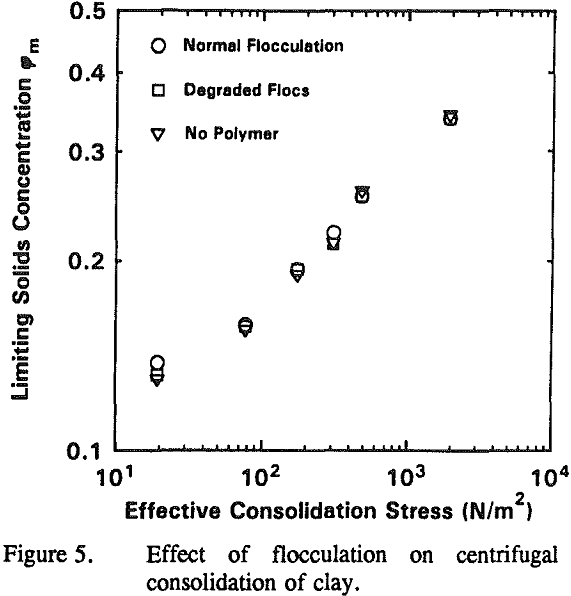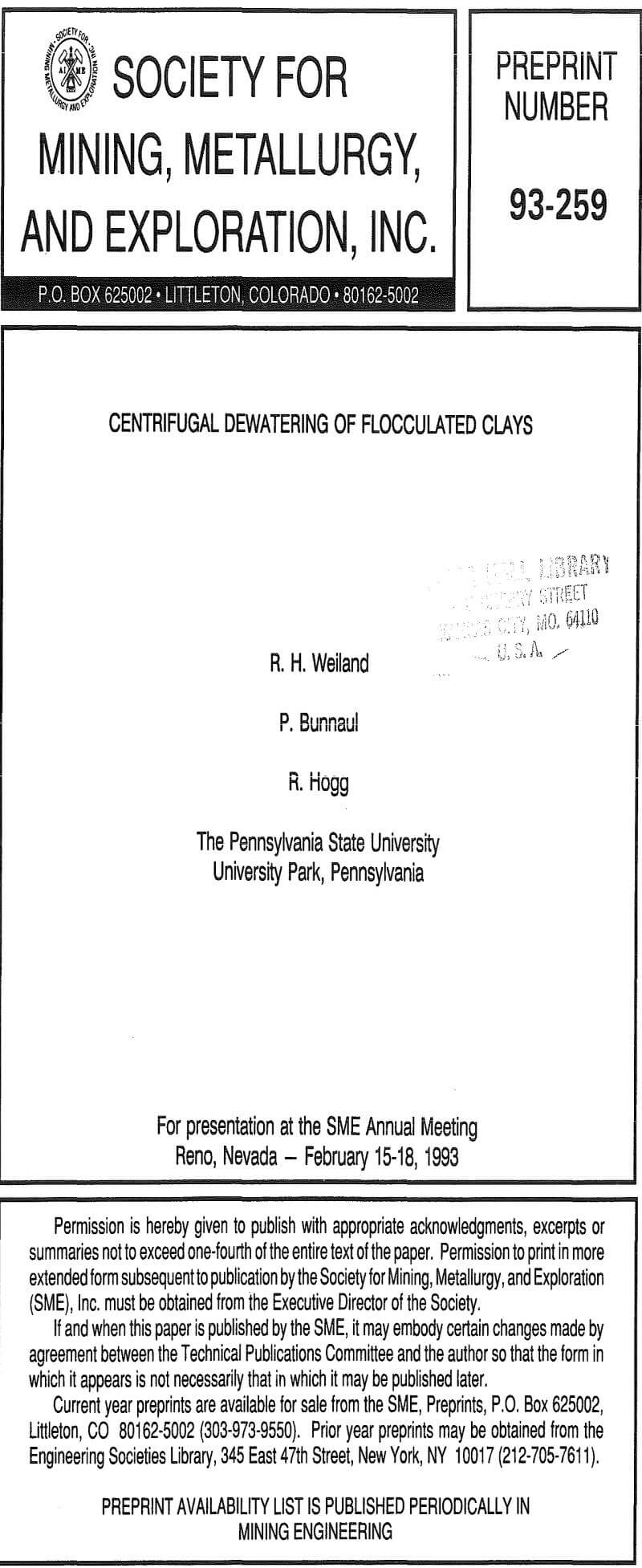The dewatering of flocculated clay suspensions by compression in a centrifugal field has been investigated. The results are evaluated with regard to both direct applicability to centrifugal dewatering, in solid-bowl centrifuges for example, and indirect applications to gravity sedimentation systems. It is well known that sediment consolidation under gravity depends on structural characteristics such as permeability and on the “self-weight” of overlying sediment layers.
The constant velocity regime and the initial stage of consolidation were shown to be very strongly dependent on the extent of flocculation. The approach to a limiting, long-term, sediment volume, on the other hand, was found to be relatively insensitive to flocculation conditions.
Gravity and centrifugal dewatering tests were performed on flocculated suspensions of a kaolin clay. Polymer was added at a fixed rate of 1.52 mg/L min from a stock solution containing 500 mg/L min of the solid polymer. In situ sedimentation/ consolidation measurements were made in the same tank following the flocculation step. The initial settling rate was used as a test for reproducibility of flocculation.
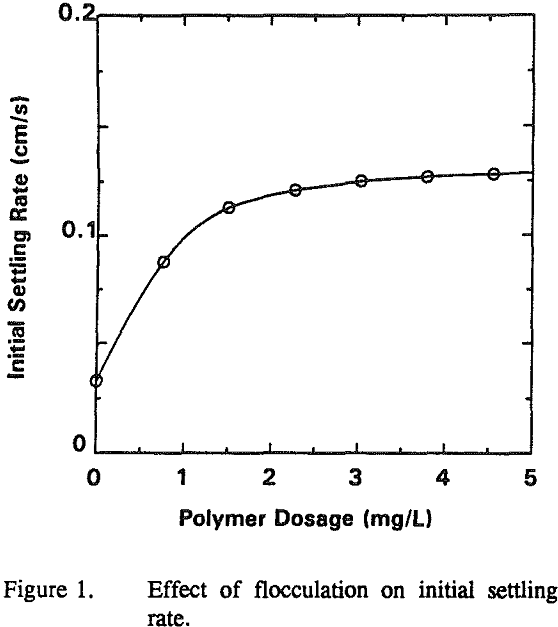
The limiting solids content ∅m increases progressively with increasing consolidation stress. The other two parameters, k and m, also vary with consolidation stress but no clear pattern emerges. It should be noted, however, that the values of these two parameters tend to compensate for one another so that more than one combination can give similar results.
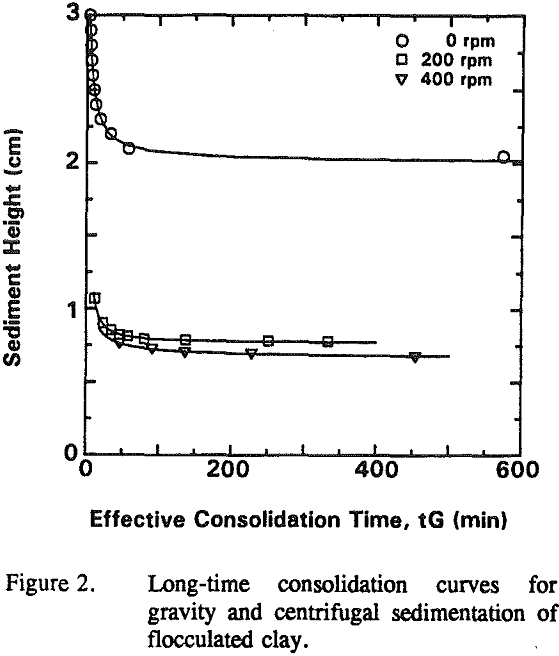
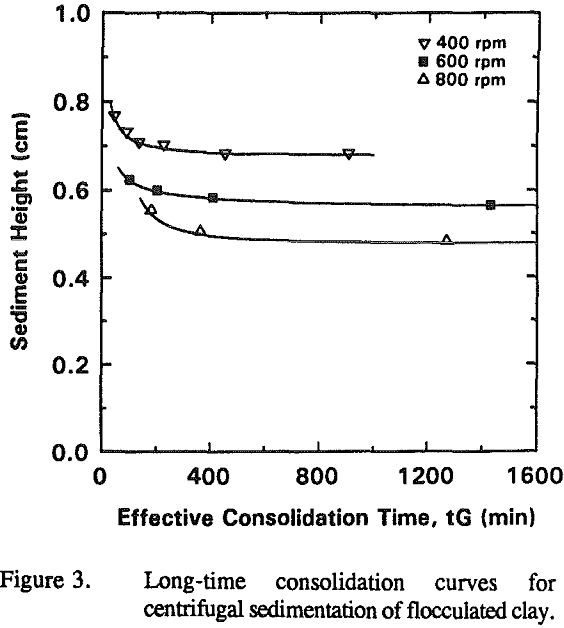
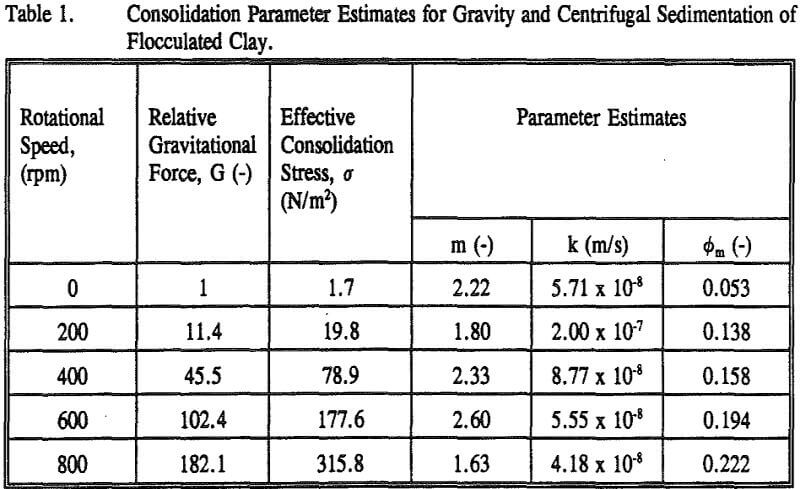
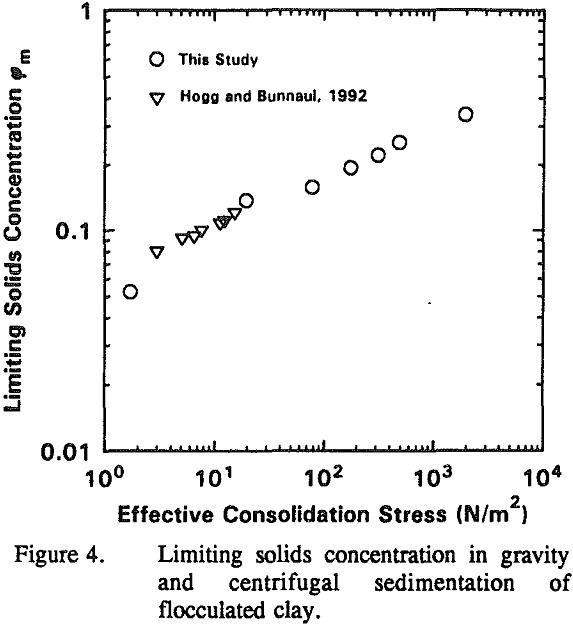
Some additional testing was performed in which the extent of flocculation was significantly reduced by
a) using the same pre-flocculation procedure as described above but subjecting the floes to substantial degradation through prolonged agitation prior to sedimentation testing
b) eliminating polymer and relying on the “natural” flocculation of the clay at pH 5-6 to provide slow settling of the solids.